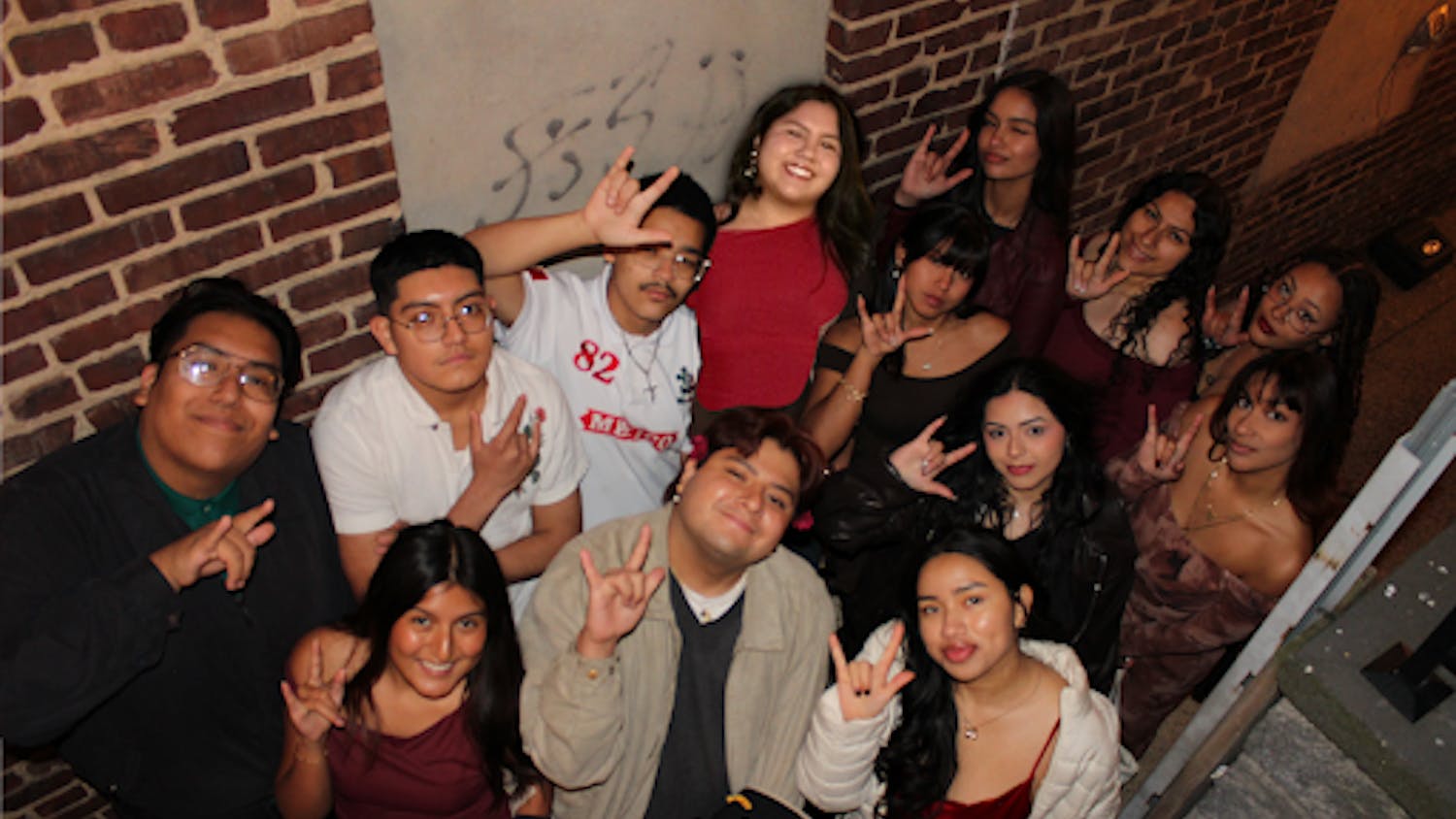"I have an eating disorder. It is not had, or did or used to. It is present tense."
These are Andrea Smeltzer's words, read by her father, seven years after she fought a personal war against bulimia and lost. She was 19 when she died in her sleep of an electrolyte imbalance.
"I will never call my daughter a bulimic," Doris Smeltzer, her mother, said. "She is not her illness."
Doris and Tom Smeltzer bravely shared the story of their daughter's struggle with disordered eating to a full house during their visit to the College on April 2 in Brower Student Center.
"Andrea's Voice: Silenced by Bulimia," sponsored by the Bod Squad, Vox and the Women's Center, was a powerful presentation with messages about body image, activism and the cultural and environmental factors that rein-force unhealthy perceptions of food and eating.
The Smeltzers gave an intimate look at the progression of Andrea's disorder and how it affected those around her. Andrea's parents were devastated by her death in 1996, but the tragic experience gave them important lessons they felt compelled to share. Throughout the presentation, Tom recited excerpts from Andrea's journals and pieces of her poetry.
"The journey is never so clear as the destination," Andrea wrote, "and the telling is more confusing still."
Tom and Doris' journey has taken them to college campuses across the nation and around the globe, where they speak about Andrea's illness and eating disorders in general.
Andrea thought she was in control of her illness, just as many sufferers do. The fact that she wasn't was glaringly apparent when her father read her words.
"I'm a lousy anorexic," Tom read for her. "The calorie deprivation thing didn't work out too well. I'm a lousy bulimic. I made my eyes bug out and called home sobbing and to boot, I didn't even lose the weight I wanted to."
Doris talked about the effects of unhealthy eating habits upon the body and how to recognize disordered tendencies in those around us. She also talked about how to approach a friend who might have a problem and what kinds of treatment plans are most effective. She highlighted the growing cultural pressures to look thin and the devastating effects those pressures can have upon a susceptible mind.
"Information is the solution only if ignorance is the problem," Doris said. Then she suggested ways to combat the ignorance about unhealthy eating habits and attitudes in our society: "If we cannot love and accept our bodies, we can at least respect them," she said.
"They used her journals, her words and her insight, and you went into her mind," Janine Bernardo, freshman biology major, said after the show.
"You can really relate to it," Jamie Pernal, freshman chemistry major, said.
"I really enjoyed it, very well done," Kristen Daskilewicz, president of Bod Squad and organizer of the event, said. "I've been looking for a program just like this to bring to the College."
She liked the idea of a presentation that incorporated a personal, emo-tional story along with really good information.
"As far as this being an issue on campus," Daskilewicz said, "I think it's a bigger issue than we might realize."
After the event, Doris' newly released book, titled after the presentation and closely mirroring it, was offered for sale and she was available for book signing. The book mixes personal narrative with Andrea's writings, just as the presentation does. A portion of all book proceeds go to the non-profit Andrea's Voice Foundation.






